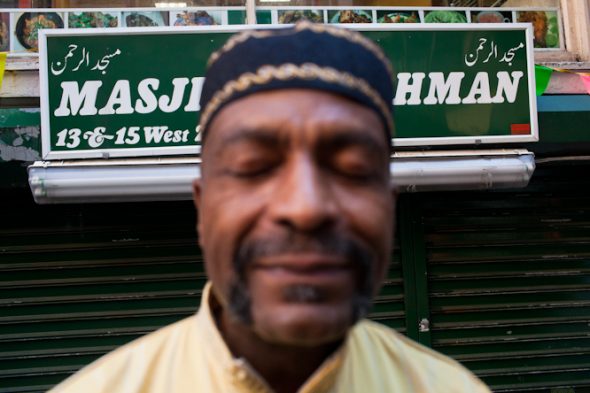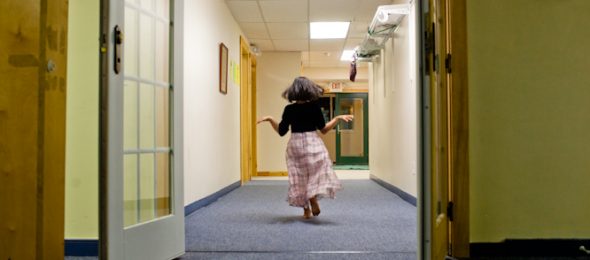
By Bassam Tariq
Dear friends,
It has been a while. We are back living the lives we left. I am in my advertising agency working on what advertising people work on. Aman is touring, flying across the world and writing incredible editorials. Life continues. There was a pause and in that pause we all met. It was only two to three weeks ago that we all were together. You were rooting for us, yelling at us, shaking your head, your fingers – your excitement and energy helped us continue.
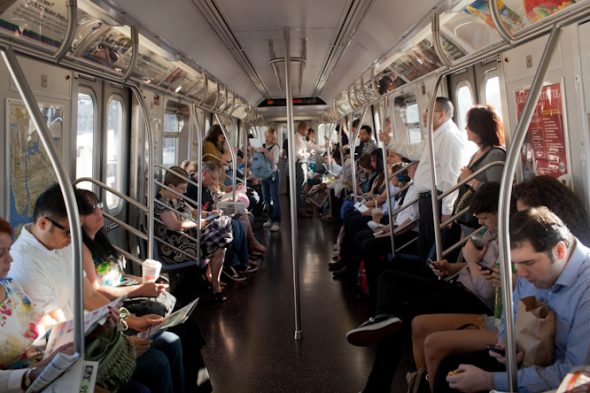

And now I sit in my cubicle wondering if we will speak again. Will we disagree again publicly? Will we continue to challenge each other? Will we try to understand those that are not like us? Does it all stop here?
I take a bus and a train to work sometimes. The morning commute isn’t a long one. I pass by the same homeless men and street vendors on my way into my office. My cubicle has my two mugs ready sitting with my made in Pakistan tea bags. After being gone for a month, everything sat there waiting for me. I brew my tea and I make my way from meetings to meetings.
I eat during the day and sleep during the night.
And as everything fades to normal, will I not wonder what all this has meant?
I have these reoccurring flashes of Lutfullah Wali, the centurion from Nebraska, scribbling profusely on his wall. When I sit in the subway train on my morning commute, I sometimes wish the skyscrapers were replaced by the beautiful mountains of Denali National Park in Alaska or even the expansive cornfields of Indiana.
But as the days pass, the road trip and it’s memories are starting to fade. And it worries me.
The people, their hospitality, their candor, their plight – they cannot be forgotten. The spirit of what we started cannot die. We must remember them. That is how they will live on.
The day of Eid, I drove from Burlington, Vermont to New York City. I made it just in time for the morning prayer of celebration at Masjid Ar Rahman. This is where it all started for Aman and I. This is the place, where two Ramadan’s ago, we were so overwhelmed by the amount of Muslims and its diversity in New York City that we were compelled to visit a new community everyday. I felt like I had to pay my respects here.
It made perfect sense in my mind to drive seven hours all night to make it to a five minute prayer and 20 minute sermon that was inaudible from the back of the prayer space. For the hopes of giving me some kind of clarity. In my mind, it was all worth it.
The following photos were taken during the Eid prayers at the storefront mosque, Masjid Ar Rahman.
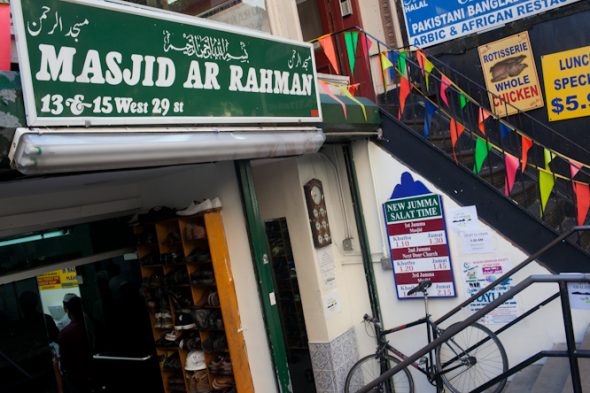

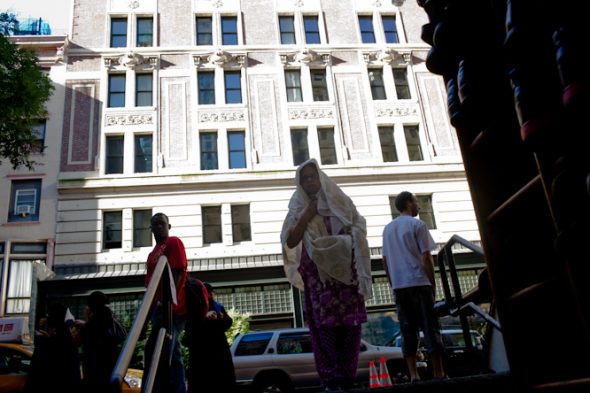
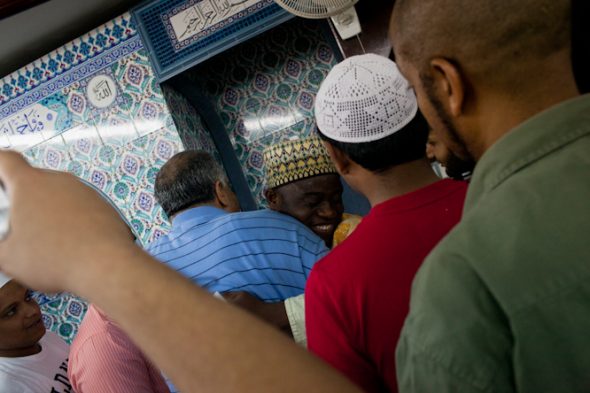
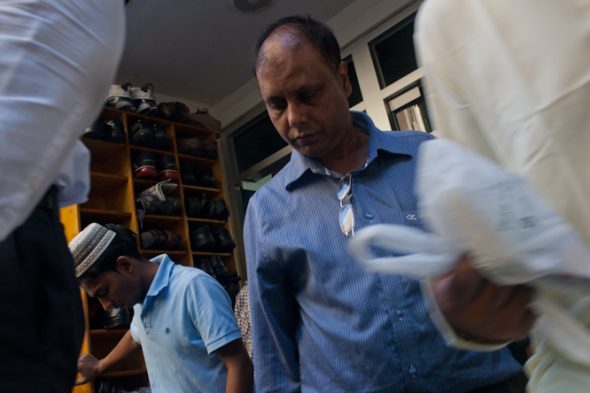


***
Later that day, I found myself at a place that challenged everything I knew about Muslims in America. There was a mosque nestled away in the heart of hipster Williamsburg, Brooklyn. Inside of it, a table was set up with cookies and cake. There was a little bit of decoration and the few congregants were waiting. They were waiting for people to come and celebrate Eid with them. And when we finally arrived as uninvited guests, they gave us big hugs and said “happy holidays.”
These few men and women are descendants of Lithuanian/Polish Tatars. Their organization was established in 1907 and at the time they were known as Muhammadans.
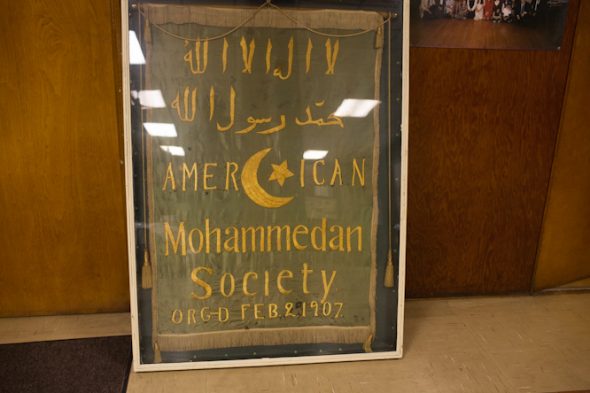
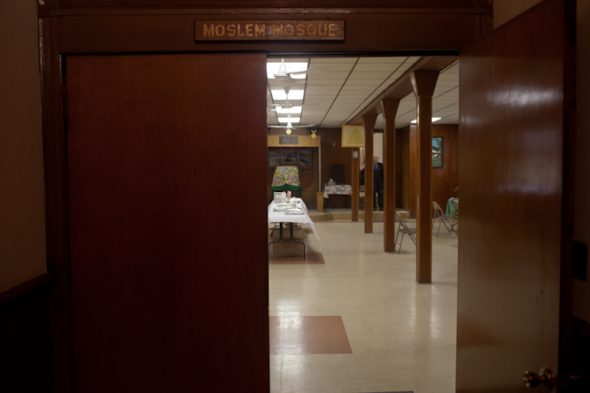


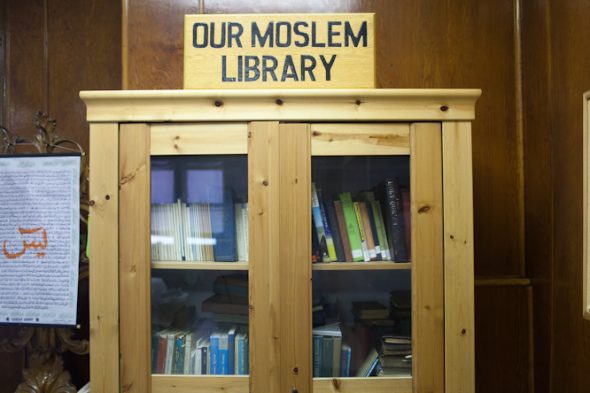
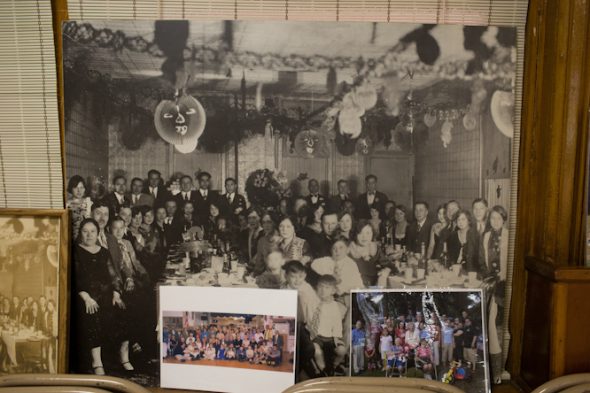
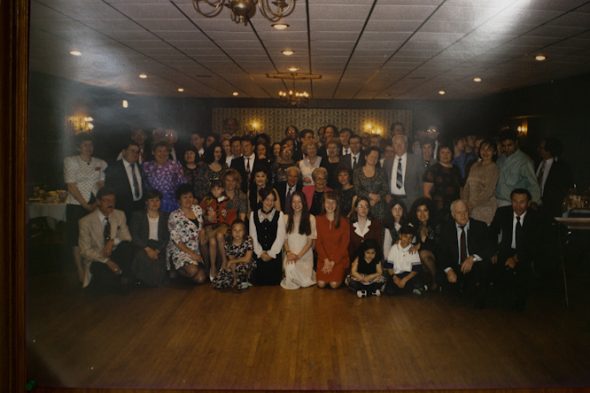
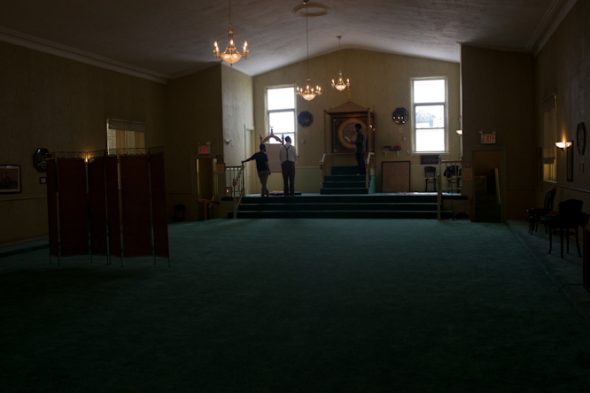
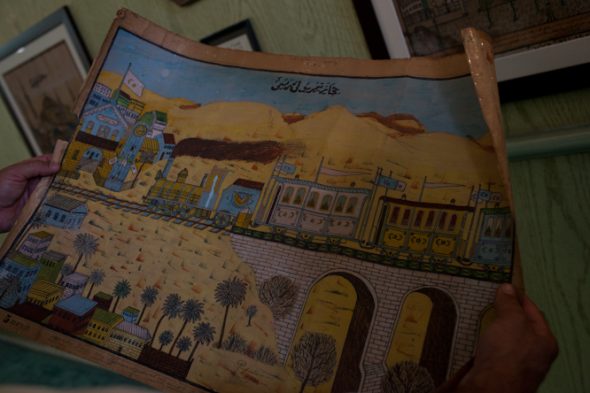

They are a small community and live amongst one another. They keep amongst themselves and are dwindling in numbers. We were their only guests that day. No one else had come for the celebration.
Yes, I know. There are many questions about who these people are. There must be. I had many of them as well and instead of asking them, I had to leave to catch a flight to Texas.
My afternoon with the Tatars was cut short. I will go back one day to visit the community, but when that day will be? Who knows…
But is the connection for me and this congregation only seasonal? Is it similar in that way to the connection that you and I have? That we will only care to look at one another when we are hungry and bored? Or when there is a plate of food between us?
As true as it might be, I can’t let myself believe that. There is something deeper that has brought us together: the stories. And perhaps that is how we will speak and stay connected. By sharing stories that mean something to us — stories that upset or uplift us. Stories of communities we would have never heard of before or cared to learn about. People that we never stopped to pay attention that we started to take note of. These are the stories that make up our life. They are the ones worth sharing, the ones we live for. Because what else are we without them?
See you soon,
Bassam Tariq
